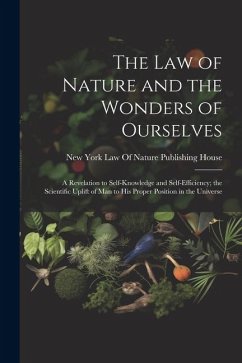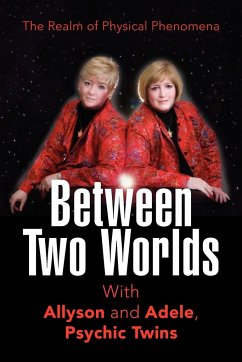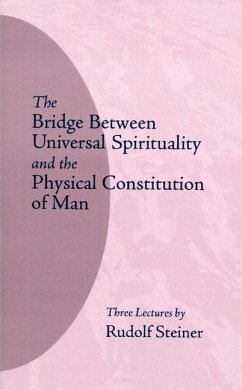
Knowledge of the Higher Worlds and Its Attainment
(Cw 10)
Übersetzer: Metaxa, George
Versandkostenfrei!
Versandfertig in über 4 Wochen
12,99 €
inkl. MwSt.

PAYBACK Punkte
6 °P sammeln!
Here is the classic translation of Steiner's foundational guide to the spiritual path. It is a manual for attaining suprasensory knowledge of the invisible and opens new perspectives on one's essential purpose in life. In 1904, Rudolf Steiner first made this account of the Western esoteric path of initiation public. With great precision, he carefully leads us from the cultivation of the fundamental soul attitudes of reverence and inner tranquility to inner development through the stages of preparation, illumination, and initiation. Practical exercises in inner and outer observation and moral d...
Here is the classic translation of Steiner's foundational guide to the spiritual path. It is a manual for attaining suprasensory knowledge of the invisible and opens new perspectives on one's essential purpose in life. In 1904, Rudolf Steiner first made this account of the Western esoteric path of initiation public. With great precision, he carefully leads us from the cultivation of the fundamental soul attitudes of reverence and inner tranquility to inner development through the stages of preparation, illumination, and initiation. Practical exercises in inner and outer observation and moral development are given. By patiently and persistently following these, new organs of soul and spirit begin to form that reveal the contours of the higher worlds hitherto concealed from us.













